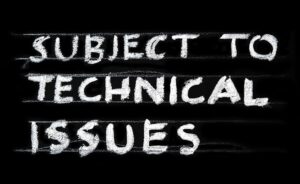Can I still sue for legal malpractice if I settled my case?
In a perfect world, a client feels that the settlement was reasonable and that he was fairly compensated for his injuries. However, there are times when a client might second guess the path his lawyer took towards that final settlement. In many cases, a client’s buyer’s remorse is simply that. There is not a viable legal malpractice case in that situation.
The lawyer’s job is to present settlement offers to the client. Lawyers can offer opinions on whether the offer is reasonable and can provide an estimate of “black board” damages. (The “black board number” is the maximum amount the client can recover under the law if they won at trial.) And the lawyer can explain the strengths and weaknesses of the case. The lawyer says whether they think the amount is a reasonable settlement. But in the end, it is solely the client’s decision whether or not to settle for the amount offered. Advice the attorney provides regarding settlement usually cannot form the basis of a legal malpractice lawsuit because of the attorney judgment rule.

There are some limited scenarios where a client can sue even if they settled. There are three primary situations where the client can still successfully sue: (1) when the attorney gave bad advice because he or she was negligent in preparing, (2) when the lawyer made technical errors in the settlement document, and (3) when the attorney was negligent outside of the settlement discussions and that negligence forced the client into a position where he or she had to settle for pennies on the dollar.
Legal Malpractice Based on Negligent Preparation
People call us all of the time complaining that their attorney was not prepared for mediation. They feel their attorney should have know the case better or done more work before mediation. This generally is not the kind of negligent preparation that gives rise to a legal malpractice lawsuit.
Settlements are approved by the Court in some cases which makes a later legal malpractice case near impossible. For example, in a wrongful death settlement, the personal representative must state under oath that his attorney told him that he could have taken the case to trial and that he thought the value of the settlement was reasonable. It is hard to overcome that testimony in a later legal malpractice case.
The type of negligent preparation that gives rise to a legal malpractice case usually involves the lawyer doing something wrong when it comes to the calculation of damages or on the law that governs the lawsuit. For example, if the attorney fails to get a business valuation when the lawsuit involves a disagreement about the value of the business, that could be negligent. Or if the lawyer got the law wrong and gave the client bad advice on whether his claim was barred by an affirmative defense.
Technical Errors in the Settlement Documents

Sometimes, attorneys make mistakes in drafting the settlement agreement itself. The language might be ambiguous. Deadlines for structured payment might not be clear. Provisions within the agreement might conflict with each other. These types of errors can lead to a legal malpractice case.
Legal Malpractice Based on Negligence Outside of Settlement
Sometimes, an attorney makes such a grave error that the client must accept a piddly settlement or nothing at all. The client usually knows about the error in these circumstances. And usually, it is an error that would result in dismissal of the case. The defense pays pennies to settle in order to avoid the time and expense of filing a motion and going through an appeal.
Our Legal Malpractice Team
Our experienced legal malpractice lawyers can tell you if you have a good legal malpractice case. Call us today or start your free case review now.